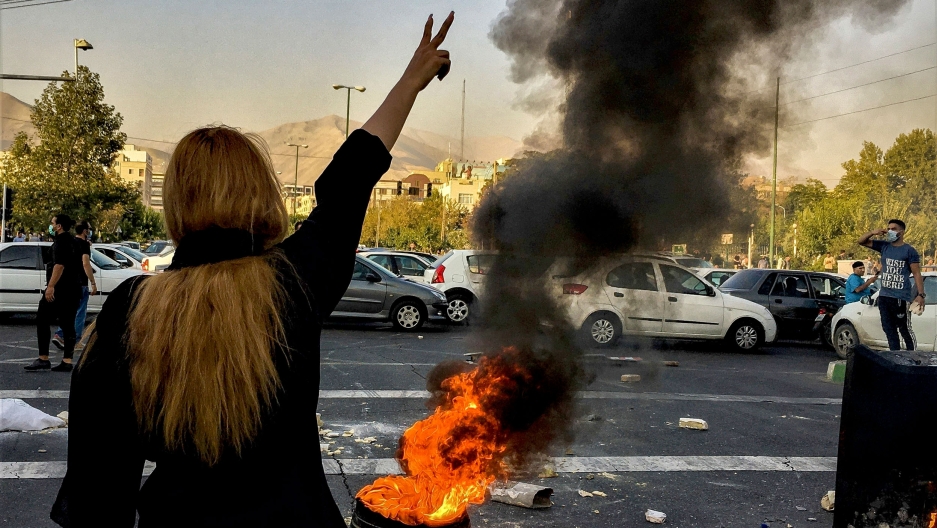
Activists in Iran have begun three days of strikes and demonstrations. Many shops in major cities are closed. Gholamhossein Mohseni-Ejei, the head of Iran’s judiciary, is blaming rioters for intimidating business owners and says protesters who have already been condemned to death will soon be executed.
Unrest has gripped Iran since September, when 22-year-old Mahsa Amini died in police custody. Mahsa had been detained by Iran’s so-called morality police for allegedly violating a hijab dress-code rule.
Ali Vaez, director of the International Crisis Group’s Iran Project, spoke with The World’s host Marco Werman about the continuing unrest.
Marco Werman: Iranian officials say they’ll crack down even harder on these protests that have rocked Iran for nearly three months now. As far as you can tell, has this call for a general nationwide strike in Iran had much traction?
Ali Vaez: It’s very difficult to say from a distance and from images that we see on the internet. But the reality is there has been three months of sustained, persistent and determined protests in Iran. And we are in a situation where the regime’s iron fist really has not been able to quell them. I think neither the regime is able to dislodge the people from the streets and prevent strikes, nor the protesters have been able to dislodge the Islamic Republic.
Aside from those facts, do you see any signs that the balance of power is actually shifting in Iran? Are the protests giving a boost to forces that might be interested in reform?
Not yet. And, you know, there is a sense, after 25 years of repeated efforts at reforms, that the supreme leader has repeated the sabotage and stymied, that the door to reform is closed. And I think there is now a widespread demand for fundamental, political change within the Iranian society. The problem is there is no viable alternative to the regime internally, and the protesters are mostly young revolutionaries who are on the streets and have nothing but their courage and grit in facing a regime that is bereft of mercy. But they’re not yet joined by the great part of the middle class, which is increasingly middle-aged and reluctant to face the regime in the streets. And as long as that dynamic does not change, that we have, instead of tens of thousands, millions of people on the streets, it is unlikely that the regime will budge. And most importantly, it is unlikely that we see defections, which is the one thing that could potentially weaken the regime’s hand at repressing the people.
It remains unclear. There was another official today that talked about the possibility of modernizing the way that they enforce the hijab rules. But, you know, the reality is that the morality police right now lie in ruins. And I think they would be unable to roll back what has happened in the past three months, which is that an increasing number of Iranian women are no longer complying with the rules and regulations of the dress code. That train has left the station. There’s no way they can turn it back. And there might be a de facto loosening of the rules, regardless of what they say publicly. I think they can no longer effectively enforce that rule.
So, the statement by the attorney general in Tehran, do you think it might have been a trial balloon of sorts set up by Iranian officials, or could it be a sign of internal divisions?
I think it’s a sign of internal debate and also admittance to the fact that status quo ante is no longer rhetorical and enforceable. But the problem, I think, is more fundamental than that, that the regime believes that if it makes concessions, fundamental concessions on the ideological pillars of the Islamic Republic, of which hijab is won, it will be perceived by the population as a sign of weakness.
This interview has been lighted edited and condensed for clarity.
